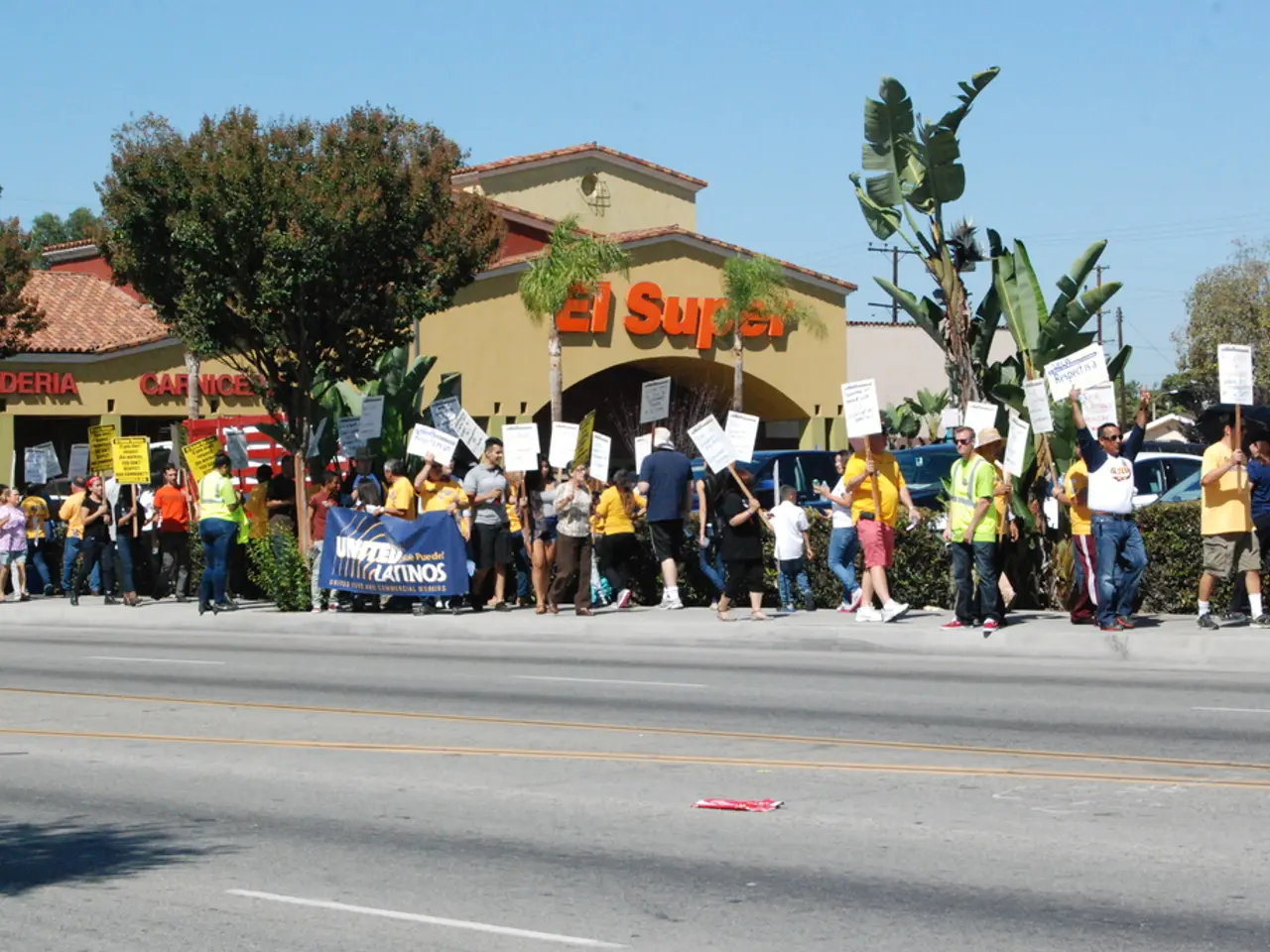"Whit Ayres, pollster for Senator Marco Rubio, discusses his miscalculations regarding Donald Trump"
In a recent episode of the "Politics. Policy. Polling. Pop Culture." podcast, Whit Ayres, Marco Rubio's longtime pollster, shared insights on the transformative impact of Donald Trump's rise in the 2016 Republican primary and the subsequent changes in the GOP and American politics.
Hosted by Margie Omero and Kristen Soltis Anderson, a bipartisan team of pollsters, the podcast took a fresh and friendly look at the numbers driving the week's biggest stories in news, politics, tech, entertainment, and pop culture. During the conversation, Ayres discussed the surprises of the 2016 Republican primary, focusing on the major shifts in voter dynamics that Trump's appeal tapped into.
Ayres emphasised the need for the GOP to adapt to these new voter dynamics, suggesting that the party must balance its core conservative principles with the populist energy Trump brought. This balance, he argued, would help the party maintain broad appeal without alienating moderates.
Ayres also reflected on the polling lessons from the 2016 election, highlighting how conventional polling methods underestimated Trump's support. He emphasised the importance of refining polling models to better detect underlying voter sentiment, enthusiasm gaps, and shifts in electorate behaviour to avoid similar surprises in future elections.
The conversation between Ayres and the hosts explored the technical improvements needed in political polling following the 2016 experience. Ayres shared his perspective on what he and others missed about Trump's appeal and discussed what the campaign taught him about modern polling.
The "Politics. Policy. Polling. Pop Culture." podcast aims to lift the hood on the numbers revealing the hidden secrets of the public's mind. The podcast can be found on Twitter and Facebook, and its latest posts, including "Polling Insights from University of Massachusetts Lowell," "Western New England University Polls," and "University of New Hampshire Polls," can be found on its site. The podcast occasionally features interviews with pollsters, journalists, and other industry leaders.
[1] Whit Ayres, Marco Rubio's longtime pollster, shared insights on the Republican Party's need to adapt to new voter dynamics in the aftermath of Donald Trump's rise. [2] Ayres emphasised the importance of refining polling models to better detect underlying voter sentiment, enthusiasm gaps, and shifts in electorate behaviour. [3] The conversation took place in Episode #74i-a of the "Politics. Policy. Polling. Pop Culture." podcast, which is available to listen to.
- The "Politics. Policy. Polling. Pop Culture." podcast regularly invites guests like Whit Ayres, Marco Rubio's longtime pollster, to share their insights on the current state of politics.
- Ayres' discussion focused on the transformative impact of Donald Trump's rise in the 2016 Republican primary and the changes it brought to the GOP and American politics.
- Ayres suggested that the Republican Party should find a balance between its core conservative principles and the populist energy Trump brought to maintain broad appeal.
- Ayres highlighted the need to refine polling models to better understand underlying voter sentiment, enthusiasm gaps, and shifts in electorate behavior after the 2016 election's polling lessons.
- The podcast, hosted by Margie Omero and Kristen Soltis Anderson, offers analysis on the biggest stories in news, politics, tech, entertainment, and pop culture from a bipartisan perspective.
- The podcast can be found on Twitter, Facebook, and its website, where posts like "Polling Insights from University of Massachusetts Lowell," "Western New England University Polls," and "University of New Hampshire Polls" can be found.
- The show occasionally features interviews with pollsters, journalists, and other industry leaders to provide listeners with fresh insights on current data and trends.
- The podcast aims to offer in-depth analyses of political news and general news, including policy-and-legislation and media surveys, to provide listeners with valuable insights and analysis for better understanding the current political climate.







